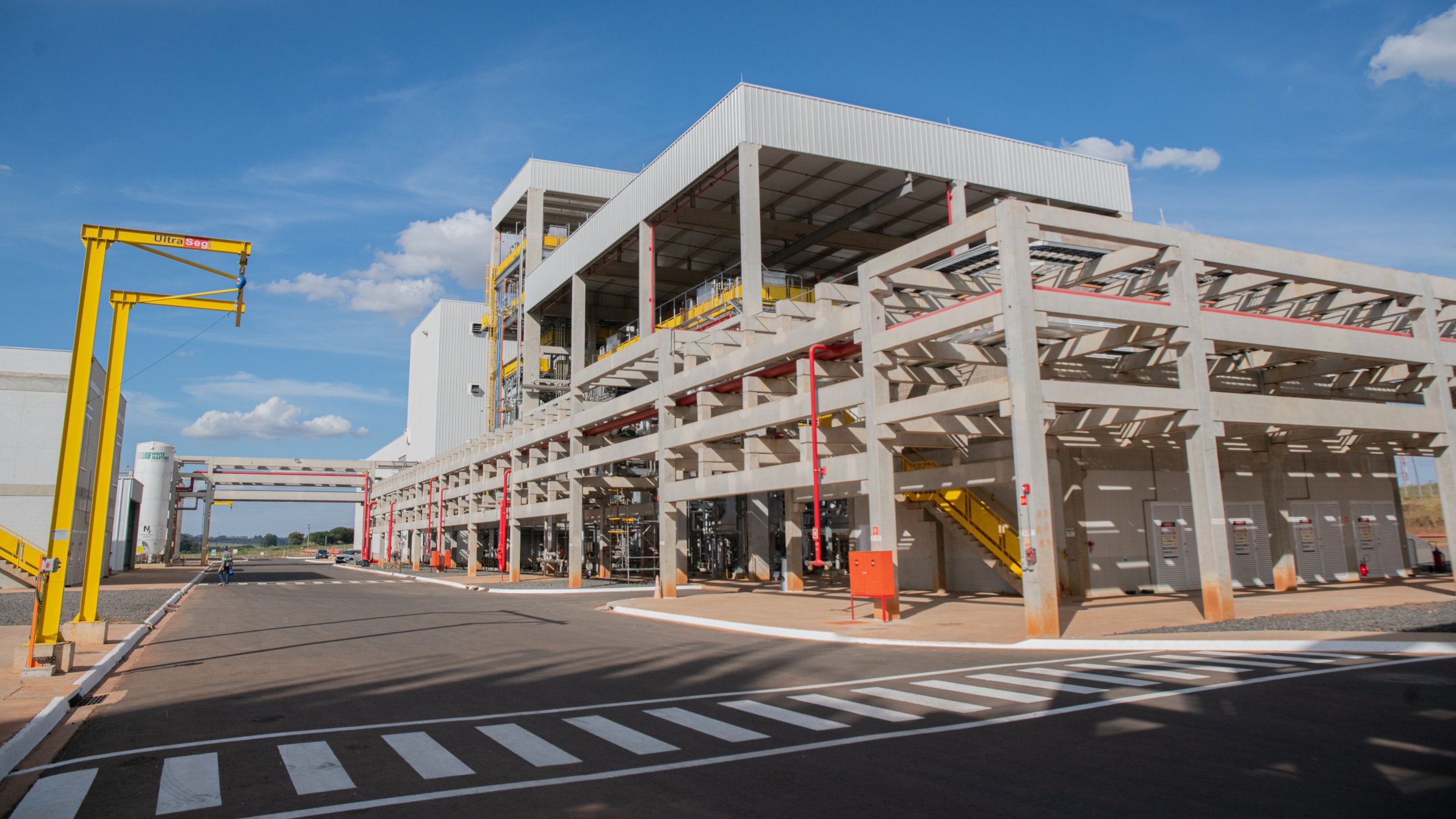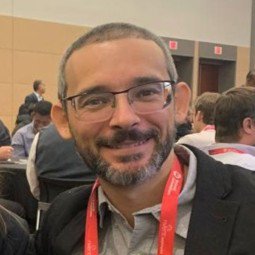
Through the integration of CP Kelco’s operations, Tate & Lyle is a global company specializing in the production of natural and functional ingredients for food, beverage, consumer products, and industrial applications markets. With a combined legacy of more than 160 years of innovation and excellence — nearly 90 of which come from CP Kelco — the company continues to strengthen its commitment to delivering sustainable, healthy, and high-performance solutions.
The facility formerly known as CP Kelco, now Tate & Lyle – Matão Unit, maintains its strategic position as one of the leading production centers of fermentation-based and naturally derived ingredients. Key products manufactured at this facility include gellan gum, pectin, xanthan gum, carrageenan, diutan gum, and the latest innovation, NUTRAVA® Citrus Fiber.
This transition enhances Tate & Lyle’s portfolio, expanding its ability to address the growing global demand for ingredients that deliver wellness, taste, and texture with environmental responsibility.
- Modernize the company’s new plant in Matão (SP)
- Optimize production
- Digitize the plant
- Integrate equipment and devices
- Manage energy consumption
- PCB solutions including low- and medium-voltage transformers, 15 kV medium-voltage switchgear, low-voltage switchboards, auxiliary low-voltage panels, and CENTERLINE® 2500 low-voltage motor control centers (MCCs).
- Automation panels, remote PLCs, switching equipment, and spare parts.
- PlantPAx®, IDC, virtualization infrastructure solution, and network design and configuration.
- Contributed to the automation of the new plant
- Ensured 100% integration with the plant’s equipment
Challenge
Tate & Lyle, a British multinational with over 165 years of history, is globally recognized for its innovative solutions in specialty ingredients for food and beverage industry. In November 2024, the company completed the acquisition of CP Kelco, strengthening its position as a leader in natural and functional solutions.
Tate & Lyle operates two strategic manufacturing facilities in the state of São Paulo:
- Limeira (SP): This plant specializes in the production of pectin, a natural ingredient used as a gelling and stabilizing agent in a variety of food products.
- Matão (SP): The Matão unit produces NUTRAVA® Citrus Fiber, an innovative citrus fiber derived from orange peels, providing structure and stability in both food and non-food applications. Due to growing demand for natural and sustainable ingredients, Tate & Lyle expanded its operations with the construction of a new plant. Feasibility studies for this industrial unit began between 2016 and 2017, focusing on cost analysis. The actual construction took place from late 2021 to early 2022, and the plant officially began operations in May 2024.
“When I took on the role of Technical Lead responsible for Electrical, Automation, and Instrumentation at Tate & Lyle, I was introduced to the challenge of assisting in the development of this new facility. From the beginning, I recognized the importance of establishing a robust project framework to ensure both operational efficiency and seamless technology integration of the plant,” explains Ramon Ferreira, Senior Electrical and Automation Engineer at Tate & Lyle.
The specialist adds that this industrial plant is focused on processing orange peels, a raw material obtained from large juice producers. The goal is to extract a substance naturally present in the peel through a detailed and complex chemical process, involving decantation and precise dosing of chemical compounds in tanks. To achieve both efficiency and precision, full automation and seamless integration of all these steps were essential.
To optimize the operation, Tate & Lyle reinforced its long-standing partnership with Rockwell Automation, launching a project that lasted about two years.
Solution
To enable this operation, an automated system was required to control equipment such as screw conveyors, electric motors, and control panels. Rockwell Automation provided the essential solutions, including electrical panels, automation software, and specialized technical support. In addition, a fully integrated solution was critical — one of the main factors that led Tate & Lyle to choose Rockwell Automation.
The plant operation was structured so that operators could monitor and control equipment directly from a control room. Instead of manual interventions, the entire logistics of transporting orange peels and initiating industrial processes was managed through an intuitive automated interface. To achieve this, Rockwell Automation not only supplied the equipment and software licenses but also deployed a highly qualified team for the development and implementation of the system.
“To mitigate any issues regarding the plant’s operational startup, large working groups were created, weekly meetings were scheduled, and on-site visits were conducted. Rockwell Automation personnel remained at the facility for approximately 14 months, providing all necessary support,” explains Ferreira.
The integrated solution involved two main business units of Rockwell Automation: The Power unit provided transformers, 15 kV medium-voltage switchgear, low-voltage switchboards, auxiliary low-voltage panels, and CENTERLINE® 2500 low-voltage motor control centers (MCCs). Installation supervision, commissioning, startup, and assisted operation were included, ensuring efficiency and safety.
The Lifecycle Services unit delivered a complete turnkey solution, including automation panels, PLCs, remote I/O, switching equipment, spare parts, and software development. Factory Acceptance Testing (FAT), installation supervision, commissioning, startup, assisted operation, and specialized training were also performed. Equally important, virtualization infrastructure solutions through the IDC were provided, including network design and configuration, ensuring high performance and reliability.
Outcome
The project delivered significant benefits to Tate & Lyle’s operations, providing enhanced control and monitoring capabilities. “Today, we can gain a much more detailed view of potential alarms, temperature levels, and other critical process variables. Fully integrated, the new unit intelligently connects all equipment, enabling operators to access any event on the plant floor immediately,” explains Ramon. He also emphasizes the ability to measure energy consumption precisely for each area of the facility and monitor the real-time status of all equipment.
The success of this implementation is expected to encourage Tate & Lyle to extend the solution to the older plant, modernizing its infrastructure and delivering the same level of automation and monitoring. Beyond energy management, this integration allows for more efficient equipment oversight, increasing both operational reliability and safety.
This industrial unit represents the first phase of a project structured around three pillars. The plant was initially designed for an annual capacity of 3,700 tons. The second phase plans to expand to 6,600 tons, and in the third phase, total capacity will reach 10,000 tons per year. With these expansions, new equipment will be required, alongside additional automation panels, electrical systems, and logistics solutions — challenges that Tate & Lyle addresses in partnership with Rockwell Automation.
“One of the major advantages of this project is the comprehensive infrastructure, which allows the plant to accommodate any Industry 4.0 technology. In such a competitive market, having a ready-to-use infrastructure is a key differentiator, accelerating our digital transformation,” concludes Ramon Ferreira, Senior Electrical and Automation Engineer at Tate & Lyle.
Published June 12, 2025

